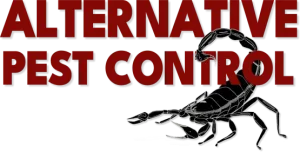Fruit flies are pesky, annoying and have health implications just like other fly species. The common fruit fly, also known as a vinegar fly are known and identified by their red eyes. Fruit flies show up in places with old perished, fermented food products like sewers, waste treatment plants, and containers with decaying food residue. They carry bacteria to other foods and humans become sick after eating that food. They are often found in commercial kitchens, home kitchens, bakeries, fruit shops and places with lots of sugary flavorings or soda drinks.
Interesting Facts
- Fruit flies only live about 30 days but a female can reproduce rapidly, laying up to 500 eggs.
- There are over 1500 species of Drosophila.
- They can exhibit social behaviors, like forming groups and communicating through chemical signals.
- They share about 60% of their genes with humans, which helps in studying genetics, developments, and diseases.
- Fruit flies have taste receptors on their feet, meaning they can taste food before they land on it!
- Fruit flies can metabolize alcohol and seem to prefer alcoholic environments, which can help with studies on addiction.
Causes
Fruit flies are active in warmer seasons and reproduce in large numbers. They are present year round but not as active during cooler months. They are attracted to ripened or fermented fruits or vegetables. Pumpkins and tomatoes are prime culprits. Bananas and mangoes are also one of the most common sources of infestations at home. Once in the home, they will be attracted to sugary, bubbly drinks.
Prevention
- Check fruits and veggies for fly eggs or larva hidden in the products to avoid bringing them into your home.
- Washing fruits as soon as they are brought in will help, and refrigerating foods will keep them from becoming infested.
- Ripe foods should be eaten fresh and older foods should be stored in containers that are sealed.
- Keeping sugary items dry and sealed will help. Things like cornmeal, sucrose, grape sugar powder and yeast need to be in sealed containers. The flies will be attracted to these items if they get wet or damp.
- Seal wine containers. As stated above, fruit flies love the taste and smell of wine and other alcohols and will lay eggs near the mouth of the brewing containers. Larva will hatch and fall into the brewing wine!
- Keep the kitchen and utensils clean. Clean cutting boards, fruit plates, cups and knives soon after each use.
- Empty the trash regularly and rinse cans or bottles with sugary residue or alcohol.
- Installing finer mesh screens on windows can also help.
- Replace old cleaning supplies like moldy or blackened sponges and mops, since they attract flies.
Solutions
Alcohol Trap – An empty wine bottle with just a little wine residue left makes a great fruit fly trap. Keep one inch or less of wine in the bottom of the bottle. They funnel-shape of the bottle traps the fruit flies and since there are no supports to cling to, they fall into the wine and drown.
Soda Trap – Pour a small amount of soda, beer, or apple cider in a container and cover with plastic film. Poke holes in the film so the flies will enter to get to the liquid but will be hard for them to escape.
Sugar & Vinegar Trap – Mix a small amount of vinegar, sugar and dish detergent and stir evenly. They are attracted to the sweet and sour smell of sugar and vinegar and the detergent kills them.
Fumigate the Room – Burning an orange peel or dried wormwood will repel fruit flies.
Plants With Strong Scents – Basil, pepper, lavender, clove, lemongrass and mints are offensive to fruit flies and placing these plants in front of windows and doors can help repel them.
Drain Treatments – Vinegar or boiling water down the drains in the kitchen and bathroom sinks will kill the fly eggs and larva that are in the drains. There is also a good product call BioFoam that works well and keeping drains clean.
If you follow some of these tips and tricks fruit flies will no longer be a persistent problem in your home. Feel free to give us a call or find us on social media if you need more solutions or advice in treating your own bug issues. We’re here to help!



